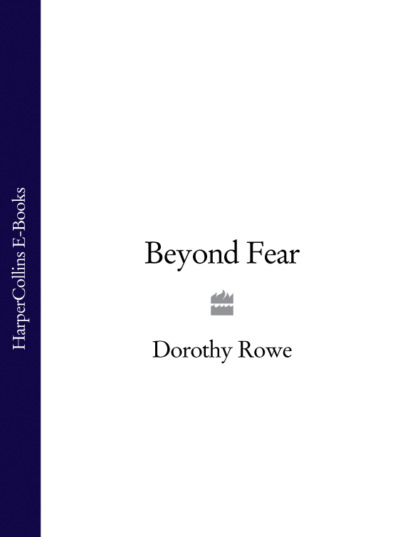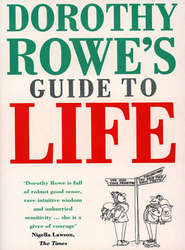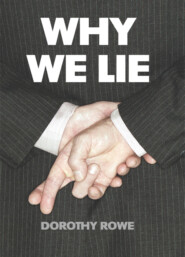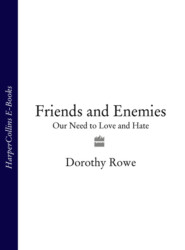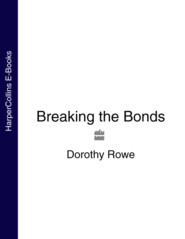По всем вопросам обращайтесь на: info@litportal.ru
(©) 2003-2024.
✖
Beyond Fear
Автор
Год написания книги
2018
Настройки чтения
Размер шрифта
Высота строк
Поля
Surveys indicate that about one in eight women are victims of sexual abuse in childhood, with the figure rising to as much as 50 per cent in women who use psychiatric services. Among the recognised long-term consequences are eating disorders, substance abuse, self-harm, anxiety and depression, as well as more general difficulties with relationships, self-esteem and sexuality. Women with a diagnosis of borderline personality disorder often report a history of child sexual abuse as well.
(#litres_trial_promo)
Therapists had to find a new way of working with clients who had been sexually abused. Some therapists in the USA developed the practice of advising a client who had been sexually abused by a parent to confront the offending parent. Therapists can argue the pros and cons of this method and never come to a conclusion, but the immediate effect of this method was that the client’s family was thrown into turmoil. Jack’s story, which I shall recount later on, tells of a family who accepted the truth of one such revelation. Other families did not, and ferocious battles in and out of the law courts followed. In the USA, where every problem in life is turned into a medical condition, False Memory Syndrome was discovered. Whole forests of trees were sacrificed as arguments raged between those who said that all accusations of sexual abuse were completely true and those who said that all accusations of sexual abuse were completely false. Quiet voices of reason were lost in the clamour.
Eventually the dust settled and quiet voices of reason can now be heard saying that stories of sexual abuse in childhood may come from three sources:
1 Where the person has always clearly remembered the events of sexual abuse.
2 Where the person repressed memories of sexual abuse in childhood but certain events in later life triggered recall of these memories.
3 Where the person had not been sexually abused by the parent but in other ways had been hurt by the parent, thus leading them to harbour a deep hatred and a need for revenge on the parent.
With sources two and three it is safe to assume that the person has suffered such a threat to their sense of being a person that a desperate defence, that of massive repression or a passion for revenge, is seen as necessary. When the person clearly remembers the abuse it can be that as a child they found the abuse extremely threatening and shameful. As an adult the person still feels besmirched, guilty and worthless. Or it may be that the person as a child did not find the actions of the abusive adult personally threatening. The child may merely have been intrigued with what went on, in the way that children can be intrigued by strange or bizarre scenes which an adult might find unpleasant, even revolting. As an adult I do not want to see any living thing killed, but as a child I would not miss seeing my father dispatch a chicken with an axe and proceed to pluck and eviscerate it. Or it may be that, for the child, the abuse brings comfort and pleasure, as the story of Jack will show, but this reaction can have the unhappy outcome that the child identifies with the abuser and goes on to become an abuser himself. Often the damage that is done to a child comes not from the actual abuse but from the behaviour of adults when they discover the abuse. The child may discover that adults see him as damaged or dirty, or as being responsible for the abuse. I was not sexually abused as a child, but, when I was fourteen, a man inveigled me into witnessing him exposing himself. I was amazed and somewhat disconcerted, because in our prudish household penises were certainly not on view, but not for a moment did I consider telling my mother about this event. I knew full well that she would blame me for what had happened. I should not have been on my bicycle, on that road, coming straight home from a swim on a hot Saturday afternoon. If I were not such a bad child this event would not have happened.
These three possible sources of the accounts of sexual abuse seem straightforward, but the stumbling block is a clear and agreed definition of sexual abuse. Some of the fathers accused of sexual abuse by their daughters insisted that they were lying and defined sexual abuse as sexual penetration. They would have agreed with Bill Clinton’s assertion that he did not have sex with Monica Lewinsky. However, all women know that there is more to sex than penetration. For a girl, a father’s lewd comments about her developing bosom or her sexual potential, or the father’s refusal to recognize the boundaries a girl creates to maintain her privacy, can seem to the girl as threatening and dangerous as a full sexual onslaught. A girl can clearly distinguish the warm, loving, sexual gaze of a man who accepts her as the person she is from the hard, sexual, threatening gaze of a man who sees her as an available sexual object. To women the first gaze is delightful; the second terrifying.
It was this second kind of gaze on the part of the father of a fourteen-year-old girl which made me certain that there was something seriously amiss in the family of this girl, who had been brought halfway across Britain to be a research patient in the psychiatric unit where I was working. This happened thirty years ago, in the early 1970s, when psychiatrists were completely convinced that there were such things as mental illnesses, and that these illnesses had a physical cause. My psychiatrist colleagues were researching what was called the biological basis of mood change, and this young girl, Karen, was deemed to be a suitable patient for a physiological study.
At that early stage in my career I was prepared to accept the psychiatric theories of mania and depression, and so I took part in the research by being a proper psychologist who administered tests. Karen seemed to exhibit only one mood, that of terrified shyness, but she submitted patiently to my demands and to those of the psychiatrists who were measuring certain physiological changes.
Karen’s degree of shyness suggested that she was frightened to do anything in case she made a mistake and displeased someone. This came out clearly in my tests, during which, if she made a response at all, it was guarded and extremely limited to the point of seeming childish, far below the level of intellect and maturity she had shown before she became ill. However, as the weeks went by, she gradually relaxed, though she remained shy, and this relaxation was reflected in her test responses, which became more able, various and creative.
There were a number of young patients in the unit, and I took it upon myself to try to make their time with us more interesting. The unit, an old house set in large grounds, was reasonably pleasant and comfortable, infinitely better than the traditional asylum where Karen had first been incarcerated, but there was little for patients to do except sit in the dayroom or carry out a few very simple tasks in occupational therapy. I helped to bring the young patients together so they could get to know one another, and occasionally we went for walks or into town to shop and to go to the cinema.
When I worked in Sydney as an educational psychologist, the only office I had was my car. I worked in schools and often visited a child’s family at home. This I found invaluable, because it allowed me to discover aspects of the child’s life which the family either kept secret or simply did not think to mention to me. Accordingly, though I had met Karen’s parents when they came to visit her, I wanted to see the family home.
Karen’s parents made me welcome. Her mother was quiet and undemonstrative, not given to hugging or kissing her daughter. Her father was much more lively and demonstrative. I felt that the parents had secrets, but it was not until one particular visit, when I was getting into the father’s van while he stood holding the door, that I had a clue as to what these secrets might be. I glanced up and saw him looking at me. He did not look away. He wanted me to see him looking at me with a searing sexual gaze that was both a threat and an invitation. Now I knew that the family secrets were, in part at least, sexual.
My psychiatrist colleagues did not think that my concerns about the family were in any way significant. Months passed. Karen started at a school close to the unit. She studied successfully and fitted into the school routine. Her physiological tests showed nothing of significance and so, eventually, she went home.
Karen and I kept in touch by cards and letters. Thirty years went by. Every Christmas she sent me a card and a letter with a summary of her year’s events. She left school, got a job, met and married a fine man. She continued working and had children who did well academically. We met socially sometimes when I was in her part of the UK, but it was not until after her father died that she phoned me and asked whether she could talk to me. Over the years she had suffered periods of depression, but she and her husband had learned to recognize the danger signs and deal with it effectively. Now, however, what was happening was different.
Karen remembered remarkably little of her childhood, and she did not speculate about the significance of what she did remember. She had not linked one memory of her father forcing her to eat baked beans with the fact that her choice of diet was extremely limited and not based on any theory of nutrition. There was a wide range of ordinary foods she could not bring herself to eat, just as she could not possibly eat baked beans.
Karen had a similar problem with sex. She loved her husband and she wanted to respond fully to him, but, while she could approach him with passion, at the critical moment she would pull back, frightened and not knowing why she was afraid. It seemed that from early childhood she had been operating under four internalized injunctions: Don’t remember, don’t ask questions, be afraid, know that you can never be good enough.
Karen had remained close to her parents and, when her father became seriously ill, she shared her mother’s anxiety. However, very shortly after her father died her mother spoke of him being a wonderful man who had devoted himself to his family. Karen suddenly felt very angry. This was not like her. She did not get angry with people. Whenever something went wrong she always blamed herself. She should have tried harder, been a better person. However, now not only was she angry, she was not blaming herself for getting angry.
Karen had always found it difficult to talk about herself, so when she came to see me after her father’s death she spoke haltingly, sidling up to something rather than confronting it head on. Thus we sidled up to the question of what her father had or had not done when she was a child and a teenager. I knew that this could not be a conversation between client and therapist because I was part of Karen’s past, just as her father had been. Our conversation had to be like that of two family members who were trying to remember and understand the past. So I told Karen what I remembered of my visit to her family, and how her father had looked at me. She smiled sadly and shook her head. ‘That’s what he did to all my girlfriends. I didn’t like to invite them home.’
I did not feel it was necessary for Karen to dig in her memory for particular events and lay them out like the contents of a trunk that had stood unopened for many years. If she had had no one to talk to she and I might have done that, but she and her husband did talk to one another. They knew each other very well.
How very different Karen’s life would have been had the first doctor who saw her said to himself, ‘I wonder what’s going on in this child’s home that makes her so frightened she can hardly move?’ Nowadays most doctors would ask themselves this question, and most child psychiatrists would know that to understand why a child behaves as he does he must be looked at in the context of the family. Many, though not all, child psychiatrists and clinical psychologists know the truth of the advice I was given back in 1961. It was: ‘The presenting problem is never the real problem.’ Family therapists are no doubt well aware that the real problem has something to do with the family member who refuses to attend discussions with the therapist.
Karen’s main interest seemed to be to fill in the gaps in her family story. Until she knew the full story she would feel incomplete and thus inadequate. I gave her some of my papers from all those years ago, and she spoke to several family members whom she felt could bear the burden of uncovering family secrets. She would not speak about these matters to her mother because she did not feel that her mother, now old, could bear to be forced to remember the past.
Karen’s principal problem, as I saw it, was that her propensity to blame herself for every disaster turned the natural sadness she felt into depression. Otherwise she managed her life very well. Had she been having greater and more diverse difficulties I would have recommended that she read Carolyn Ainscough and Kay Toon’s book Breaking Free: Help for Survivors of Child Sexual Abuse?
(#litres_trial_promo) and perhaps join a self-help group of adult survivors. This kind of group has enabled many men and women to confront the demons from their past and defeat them. Alas, such groups are sparse, and few are a regular part of mental healthcare.
For all the people who have suffered sexual abuse in childhood to receive appropriate help, governments would have to recognize and deal with the incidence of abuse not just in families but in certain institutions. A great deal of fuss is made about strangers who prey upon children. When the News of the World printed the photographs of a number of convicted paedophiles now living in the community, there were noisy demonstrations and the homes of suspected paedophiles were attacked. What was ignored in all this was that the majority of children who suffer abuse do so at the hands of a parent or someone they know and trust. It is far worse to be abused by someone you know and trust than by a stranger. Recovery from abuse by a stranger can be relatively straightforward, though not easy, by seeing it as a chance event for which you are not responsible and do not deserve, and the offender as being completely in the wrong and meriting punishment. However, when the offender is someone in whom you have placed your trust, someone whom you love and you hope loves you, recovery is not simple. We all long for a parent who loves us and looks after us, and when our parent falls far short of the mark the longing we have for the parent they might have been can tie us to the parent who harms us. Our longing for the perfect parent can prevent us from seeing the parent who harms us as a mere human-sized human being. Instead we see this parent as looming over us, wielding massive parental power which we dare not ignore or disobey.
Powerful though a parent may seem to be, how much more powerful is a man who has access to God’s power. The Catholic Church demands from its clergy and its flock obedience and silence. Any institution which operates on principles of obedience and silence creates the conditions for the abuse of power. Catholic children were, and sometimes still are, fiercely and brutally beaten. When I was a child in Australia the Christian Brothers’ schools for boys were notorious for the priests’ brutality against the pupils. Martin McGuinness, now Minister for Education in Northern Ireland, and Conor McPherson, the brilliant young Irish playwright, have spoken of the beatings they received at Catholic schools. In recent years some Catholics have broken the order of silence and have spoken, not just of physical abuse, but of sexual abuse at the hands of priests. What started as a trickle of accounts of sexual abuse by the clergy turned into a torrent in the USA, the Netherlands, the UK, Australia and Ireland. These accounts showed how the clergy used their priestly power to coerce and silence their victims. An eleven-year-old girl told how a priest would follow an act of abuse by saying: ‘This is our secret and you mustn’t tell anybody. You are very special Sarah, very special indeed. Secrets can never be broken. However, if you do tell anyone, then God will know what you have done. Because I am a priest, God will inform me of your deed, and as a consequence you will need to be punished. I want you to remember, Sarah, if God tells me you have been naughty, I will kill you. Do you understand? I will kill you.’
(#litres_trial_promo)
The Catholic Church was extremely slow to acknowledge that harm had been done by priests to those in their care. Following legal action by some victims, the Church has made some modest remunerations, and some dioceses have created the post of child protection officer, but the ethos of the institution has not changed. How can it when a cardinal, in the process of inauguration, ‘takes a vow of secrecy to the Pope which states: “I promise to keep secret anything confided in me in confidence that if revealed will cause scandal or harm to the Roman Catholic Church.”’
(#litres_trial_promo)
When Monsignor James Joyce was child protection officer for the Catholic diocese of Portsmouth from 1994 to 1999, he met victims of abuse and their families. He wrote, ‘Most were in shock, stunned not only by what had happened and its effect on them, but also by the silence and denial by the Church. Many victims of abuse had their lives destroyed. They found relationships with their families and friends distorted, their sexuality confused and their whole being affected. They couldn’t understand why it had happened to them. ’
(#litres_trial_promo)
Monsignor Joyce found that the system whereby child protection officers were priests or deacons who, as the Church requires, had made a vow of obedience to their bishop rendered them powerless. A priest or deacon cannot tell a bishop what to do. He wrote, ‘The climate in the Church is still one of denying abuse and minimising its effect, because to accept it is to open up issues about power. Parishes and dioceses can still be run on the whim of a priest or a bishop, and there is no appeal or grievance procedure in the law of the Church.’
(#litres_trial_promo)
Media stories of abusive priests have been matched by stories about workers in care homes for children who physically and sexually abused the children in their care, and by stories of international paedophile rings whose members entrap, abuse and even murder children for their own amusement and for the creation of pornography which is now a multibillion-dollar industry. Some care home assistants and some paedophiles have been charged, and some of these have been convicted for their crimes. Terrible though all these stories are, however, they do not arouse the kind of public passion that forces governments to take some major action to deal with the perpetrators, protect children and compensate those who have suffered. Nick Davies, whose investigations into care home abuse and the activities of paedophiles have won awards, noted that ‘The political reality is that the Home Office continues to steer police resources into dealing with reported crime. In its major 1996 inquiry, Childhood Matters, the NSPCC concluded: “The legal system, designed to provide justice and redress for the victims of abuse, is failing to do so consistently.”’
(#litres_trial_promo)
Nick Davies wrote about the work of Rob Jones, who, as a young detective sergeant, moved to Avon and Somerset’s Child Protection Team, where he developed a way of working which resulted in the successful prosecution of many of the members of a paedophile ring who preyed on teenage boys. In 2000, wrote Nick Davies, ‘Rob Jones devised his own package of proactive child protection to safeguard children from abuse, particularly in the world of sport. He called it Child Safe. His chief constable supported him. It was the only such scheme in the country and he set out to spread it to other forces and recruited footballing stars, including Gary Lineker and Kevin Keegan, to help him. Some forces have adopted it. Others are not so keen. They say it’s women’s work.’
(#litres_trial_promo)
‘Women’s work’ is something such men belittle and scorn because what men call women’s work involves caring for others. Caring for others calls for the tender emotions which many men in the course of their upbringing are forced to learn to deny. For the majority of women feelings of affection, kindness, sympathy and tenderness are linked to sexual feelings, but when men deny these feelings and their link to sexual feelings, sex becomes an activity no different from driving a fast car or winning a game of golf. Sexual feeling becomes no more than the sensation of excitement and power that can confirm the man’s sense of existing as a person. To get this feeling he acts upon someone’s body, or on his own, and uses it as an object, in the same way he uses a car or a golf club. Just what a man does with a sexual object is often bizarre - it is men, rarely women, who develop fetishes and perversions - and often inhuman - it is men, extremely rarely women, who commit rape.
If this attitude towards sex is the result of what is an ordinary upbringing for a boy, what happens to a boy who experiences not just the usual indoctrination about maleness but also the experience of being treated as a sexual object?
Jack and his wife Joy agreed to my recording his story, in the hope that it might be of use to other people in a similar predicament. All that Jack asked was that I should not give the name of the orphanage he lived in as a child. ‘Things are different now,’ he said, ‘or at least I hope they are.’
We had met twelve years previously when their son Mark had been in trouble at school. He was a very bright lad, but he stayed away from school a lot, and when he was there he would not work. His headmaster wanted to expel him, but before this could be done the Education Department needed a psychologist’s advice. Mark and his parents came to see me, and eventually Mark went to a boarding school. His parents came a few more times to discuss their marriage. It had become clear that much of Mark’s difficult behaviour stemmed from the strain in their relationship.
Joy found it hard to criticize Jack because she knew he was a devoted, caring father. She wanted to make their relationship better and wanted to talk to me about it. Jack was not so keen, but he came back with her for several meetings. After a while they stopped coming, saying that things were better, and I lost touch with them. Over the years I often wondered what had happened to Mark. I was relieved, as we sat down in my office, when Joy said, ‘Mark said that we ought to get in touch with you.’ She went on, ‘It’s very good of you to see us, and at such short notice too.’ She told me that Mark was married with two children and had his own business. Alice, their eldest, was married, their second daughter, Jenny, was working in Edinburgh, Ray was a research scientist, and Louise, the youngest, was at university.
Joy paused and looked at Jack. He looked dreadfully upset. He said, ‘I’ve been very stupid. It’s about the children… when they were young… what I did to them. I… interfered… with them… not all of them. I didn’t think -’
His voice broke. Joy, gently, took over, and went on talking, taking responsibility for telling me what had happened. She spoke very simply and directly, explaining carefully and laying no blame, trying to be fair to everyone concerned. She described how their eldest daughter, Alice, had three children and lived a hundred miles away. Joy had noticed how infrequently Alice visited them, and how when they visited Alice the atmosphere was very strained. She knew that Alice and her husband were having difficulties and that Alice was consulting a counsellor about this. One day Alice phoned to say that she would be calling to see them. She made a special point of arranging to arrive at a time when Jack would be home from work. When she came she asked both of them to sit down so that she could tell them something very important. Joy thought Alice was going to tell them she had left her husband, and was puzzled when Alice said that she was going to leave the problem with them.
Then she told Joy, and reminded her father, how when she was twelve her father had interfered with her sexually. He had asked her to undress for him and he had fondled her breasts. She had been very frightened by this. Over the years she had tried to forget what had happened to her. She had begun to wonder whether it had really happened, especially when at college she had confided in a friend, only to be told that Freud had said that girls often had these kinds of fantasies about their fathers. She was sure that this was not a fantasy. When her marriage ran into difficulties she went to a counsellor, and her counsellor had helped her see how what her father had done to her had undermined her trust in men and so had affected her relationship with her husband.
She had asked Mark whether anything had happened to him. Mark had said that it had, and that it had gone on for a long time. She wrote to Jenny about it, but not to Louise. Alice had always been very close to her little sister, and she was sure that nothing had happened to Louise. Her counsellor had advised her that the problem was not hers but her parents’, and that the only way she could rid herself of its effects was to return it to her parents. This she was doing, and, having done so, she left.
Joy did not attempt to describe the pain and confusion Alice left behind. Coming to see me was her way of trying to sort out her confusion. As to most introverts, it was important to her to see things clearly, no matter how painful they might be. She had always been like that. I found in the notes I had made twelve years earlier that I had written of Joy: ‘She would puzzle over the problems our discussions raised, remember them to the next session, and try to find a solution.’ I had noted, ‘She said that she had a constant, nagging anxiety and a sense of imminent disaster from some unknown quarter.’ I had also noted Jack’s ‘reluctance to enquire deeply into personal matters’.
Joy said she could not understand how it was that she had never noticed anything. Alice and Jack were always getting angry with one another, but Alice had always been an angry child, ever since she was little. Joy had spoken to Mark, and he had told her how Jack had engaged him in sexual acts for quite some while, stopping only when he thought there was a danger that she would find out. Jack defended himself. ‘It was just mutual masturbation, nothing else. Just like boys playing together.’





